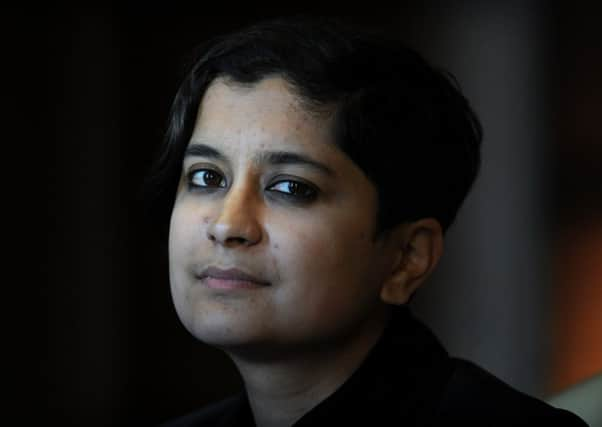Book review: On Liberty by Shami Chakrabarti


On Liberty
Shami Chakrabarti
Allen Lane £18.99
In this personal, polemical book, Chakrabarti describes her own journey from government lawyer at the Home Office to legal adviser of the campaigning organisation, and then to its directorship, against the backdrop of a growing threat from international terrorist organisations. Her first day in the office was 10 September, 2001.
The attack on the Twin Towers did not just change everything, it forced the issue of civil liberties under a harsh new light. Does the terrorist threat to our lives necessitate a restriction in our liberties? Should the fact that the world seems full of evil and resourceful zealots who wish ill to our way of life force us to restrict our own freedoms in order to combat our enemies more effectively? Or in willingly signing away our ancient rights and liberties are we effectively doing the terrorists’ job for them, creating a society which is embattled, fearful, less than truly free?
Advertisement
Hide AdChakrabarti quotes approvingly the words of Lord Hoffman, speaking on the subject of the Blair Government’s proposals presented to parliament in the wake of 9/11: “…The real threat to the life of the nation… comes not from terrorism but from laws such as these. That is the true measure of what terrorism may achieve. It is for parliament to decide whether to give the terrorists such a victory.”
At a time when people are frightened, and when our smartphones might ping at any moment with a grotesquely upsetting image of a terrorist atrocity, it is clearly hard to hold the line for human rights.
Chakrabarti seems to spend a lot of her time addressing meetings of people who are not natural supporters of civil liberties and fielding questions about why civil liberties should be extended to those who want to blow us up in our city centres, or who plot atrocities against our citizens abroad.
Often the facts confound such polarising questions. In the immediate aftermath of 7/7 some claimed that identity cards, then a hobby horse of the Blair government, would have prevented the tragedy. In fact, all of the 7/7 bombers had ID with them: they wanted the world to know exactly who they were.
For all the subtlety of the argument, this is a book with a very clear pantheon of heroes and villains. The chief villain is Tony Blair, portrayed here as a grandstanding opportunist, incapable of resisting the temptation to turn any issue into a sound bite, lured down a path of increasing authoritarianism in the days after 9/11. Former home secretary David Blunkett emerges as worryingly illiberal, happy to punish the children of the poor in a spate of what Chakrabarti labels “Asbomania”. On the side of angels sit Charles Clarke, Blunkett’s successor, and the former Tory shadow home secretary David Davis. (Chakrabarti also describes how, during the bruising parliamentary battle over 90 days pre-charge detention, “sources close to the government” briefed the media that Davis was having an affair with her. “It was the lowest of political smears… It was a tough time, one of the toughest.”)
There were other tough times, personally and politically. Her mother dies, stirring up regrets at the cultural and social circumstances which conspired to deny her mother a truly fulfilling life. Her son is born, creating the feelings of anxiety and inadequacy that any introspective parent of young children lives with. The personal and the political entwine around each other, though Chakrabarti is rather guarded with the former.
Advertisement
Hide AdThis is a book which is lawyerly rather than writerly. It presents a case for a cool-headed approach to our rights and legal safeguards even in dangerous times. Chakrabarti is clearly an effective campaigner, wise to the tricks of governments of all stripes, constructive in her dealings with the Home Office, ingenious in forging alliances with political opponents.
Cumulatively On Liberty makes a powerful case, and refutes the unfair stereotype that those concerned with legal rights and safeguards are effete members of the “liberati”.
Advertisement
Hide AdThere are glimpses of real passion and the unmistakable glint of steel too. Often these appear in the form of approving quotations from others. One of the most powerful is from the 7/7 survivor Rachel North: “…what I learned on 7 July, 2005, was that we are each other’s best security. We are the guardians of each other’s liberty… in the darkness, you could not know if the person who reached to touch you was female or male or what race or religion they were. Just a stranger in the dark on whom your sanity and survival depended. I have held on to that lesson ever since.”